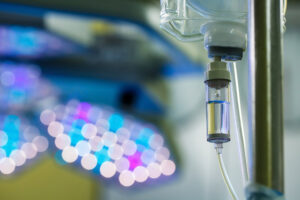Side Effects
Understand the range of treatment side effects and learn how to work with your providers to manage symptoms and maintain quality of life.

LARS
Learn what Low Anterior Resection Syndrome (LARS) is, why it happens after rectal cancer surgery, and the tools and strategies that can help you manage symptoms.

Pain and Cancer
Understand the causes of pain during colorectal cancer and explore straightforward ways to manage symptoms and maintain daily comfort.

Fatigue
Learn why fatigue is so common during colorectal cancer treatment and find practical strategies to help you manage low energy and stay supported.

Weight Loss (Cachexia)
Learn what cancer-related weight loss (cachexia) is, why it happens, and the strategies that can help you manage it during treatment.

Neuropathy
Learn how colorectal cancer treatments can cause neuropathy — tingling, numbness, or pain in the hands and feet — and find practical strategies to manage symptoms.

Skin Toxicity – “Chemo Rash”
Learn why some colorectal cancer treatments cause skin reactions — often called “chemo rash” — and find practical tips to manage symptoms and protect your skin.

Dehydration
Dehydration is common during treatment. This section explains the signs to watch for and the steps you can take to keep your body well hydrated.

Constipation and Diarrhea
Constipation and diarrhea may occur during colorectal cancer treatment. Understand the causes and explore strategies to manage both safely and effectively.

Chemotherapy-Induced Nausea and Vomiting (CINV)
Understand CINV—one of the most common chemo side effects—and explore effective ways to prevent and control it with your care team.

